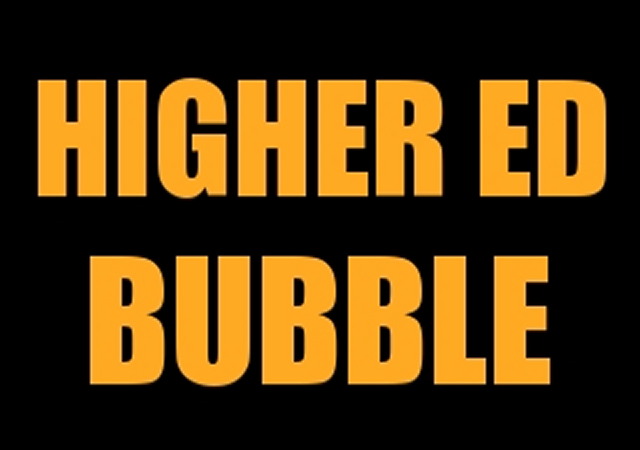Professors Deserve Some of the Blame for the Implosion of Higher Education
“This crisis comes at a time in which colleges are ill-equipped to mount a defense. How did this happen?”

Michael W. Clune is a professor of English at Case Western. He suggests that too many professors abandoned their true purpose by embracing social justice.
From the Chronicle of Higher Education:
We Asked for It
Over the past 10 years, I have watched in horror as academe set itself up for the existential crisis that has now arrived. Starting around 2014, many disciplines — including my own, English — changed their mission. Professors began to see the traditional values and methods of their elds — such as the careful weighing of evidence and the commitment to shared standards of reasoned argument — as complicit in histories of oppression. As a result, many professors and fields began to reframe their work as a kind of political activism.
In reading articles and book manuscripts for peer review, or in reviewing les when conducting faculty job searches, I found that nearly every scholar now justies their work in political terms. This interpretation of a novel or poem, that historical intervention, is valuable because it will contribute to the achievement of progressive political goals. Nor was this change limited to the humanities. Venerable scientic journals — such as Nature — now explicitly endorse political candidates; computer-science and math departments present their work as advancing social justice. Claims in academic arguments are routinely judged in terms of their likely political effects.
The costs of explicitly tying the academic enterprise to partisan politics in a democracy were eminently foreseeable and are now coming into sharp focus. Public opinion of higher education is at an all-time low. The incoming Trump administration plans to use the accreditation process to end the politicization of higher education — and to tax and fine institutions up to “100 percent” of their endowment. I believe these threats are serious because of a simple political calculation of my own: If Trump announced that he was taxing wealthy endowments down to zero, the majority of Americans would stand up and cheer.
This crisis comes at a time in which colleges are ill-equipped to mount a defense. How did this happen?
Donations tax deductible
to the full extent allowed by law.








Comments
Some blame? They aided and abetted the architects of the disaster from the conception.
Ya think!
Academia did not merely abandon scholarship for woke activism, it declared war on those who disagreed with their position. And the nonactivist faculty who were too cowardly to speak up are just as culpable as the wokesters.
Between the coming slew of EO’s and “Dear Colleague” letters (to say nothing of the likely endowment taxes), American Higher Ed is about to suffer a series of body blows that will likely destroy some schools, and force the radical remaking of many others. And legions of woke PhD’s from academia will have to find another way to make a living.
As the author notes, they brought it on themselves.
Any institution whose primary role appears to have become political deserves to pay full taxes on its income and not be subsidized by taxpayers. The Feds should also not be involved in lending taxpayer money for tuition to such institutions.